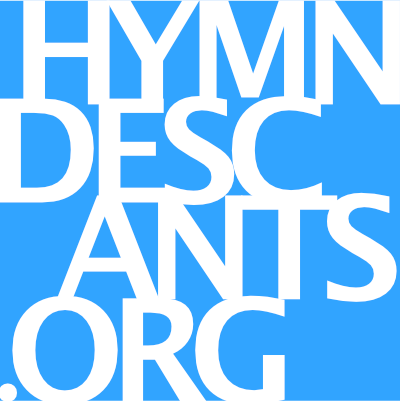Descant to the hymn tune IN BABILONE. Free score with harmonized descant. Free score.
1 descant (Hail thou onced despised)
Worship, honor, power, and blessing
thou art worthy to receive;
highest praises, without ceasing,
right it is for us to give.
Help, ye bright angelic spirits,
all your noblest anthems raise;
help to sing our Savior's merits,
help to chant Emmanuel's praise!
IN BABILONE is from Oude en Nieuwe Hollantse Boerenlieties en Contredansen (Old and New Dutch Peasant Songs and Country Dances), a collection of over a thousand tunes, dances, and marches of Dutch, French, and English origin. The tune name derives from the incipit of a Dutch ballad drawn from the apocryphal Bel and the Dragon, which opens "In Babylon, with lack of wisdom, men worshiped Bel (Baal) the silent idol." Ralph Vaughan Williams discovered an arrangement of this tune by Julius Röntgen (1855-1932) and included it in The English Hymnal (1906), from which it gained widespread use. Six years later, Röntgen published his own version for piano.
The hymn Hail thou once despised Jesus is attributed to John Blakewell, who appears to have written two verses which were found in a bound 1757 collection of his work in the Bodleian Library. Authorship of an enlargement to four verses is uncertain, often credited to Martin Madan, a compiler (publisher) of hymns, but a more convincing citation is to Augustus Toplady (Rock of Ages), who also added the fifth verse. All were known to each other and traveled in the same circle. Despite an ambiguous history, and alterations to conform to Calvinist expectations, the collaboration has produced a polished piece of passiontide hymnody. The Ascension hymn See the Conqueror mounts in triumph was written by Greek scholar Christopher Wordsworth (1807-1885) and published as words-only verses in 1862, in 15.15.15.15 meter reminiscent of the ancient Greek odes. It was revised to 8.7.8.7 D in the 1868 appendix to Hymns Ancient and Modern.
This descant was commissioned by The Rev. Dr. Titus Presler. (See his blog on world mission.)
References
- History of Hymns, UMC Discipleship Ministries: “Hail thou once despised Jesus”, C. Michael Hawn
- The Singing Church: Epiphany Lutheran Church, Dorr, MI, "Hail thou once despised Jesus" (pdf)
- Hymns and Carols of Christmas, “Hail thou once despised Jesus”
- Hymnology Archive "See the Conquror mounts in Triumph"
Updated: April 2021

